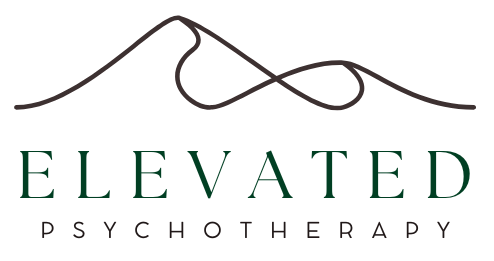Traumatic Invalidation, Part II
Why It Hurts So Much and How to Start Healing When It Keeps Happening If you read my original post on traumatic invalidation, you’re probably already familiar with how deeply painful it can feel when your emotional experience is dismissed, especially during or after trauma. Many people told me they felt seen by that language. Others said, “This explains so [read more]
Money and the Holidays
Finding peace (and balance) where money, mental health, and the holidays collide. Why the Holidays Can Feel So Complicated The holidays have a funny way of stirring up joy and anxiety at the same time, especially when money is involved. We’re surrounded by images of perfect gatherings, expensive gifts, and effortless generosity, but behind the scenes, many of us are [read more]
Mother’s Day Grief
For some of us, Mother's Day is not a celebration. It's a tender bruise we carry into brunch invitations and Instagram tributes. It aches in the grocery store card aisle and pulses when we scroll past smiling photos of mothers and daughters who still call each other every Sunday. It's complicated grief. It's guilt and longing and rage and deep, [read more]
What Depression Really Feels Like
Depression doesn’t always look how people expect. It’s not just feeling sad. It’s not always crying in bed or dramatic movie scenes. Sometimes it looks like going through the motions with a smile no one questions. Other times, it feels like everything has stopped: your energy, your interest, your hope. What It Feels Like to Be Depressed Depression drains you. [read more]
Depression
Feeling Stuck? Let’s Talk About Depression Everyone feels down sometimes. But depression is more than sadness. It’s a heavy fog that makes it hard to function, connect, or even get out of bed. If this sounds familiar, you’re not alone, and you don’t have to keep feeling this way. What Depression Can Look Like Depression doesn’t always look like tears. [read more]
Protest Safety
Our community is standing up for what’s right. If you are new to protesting, knowing how to stay safe and prepared is essential. Follow these protest safety guidelines to ensure a meaningful and secure experience. Before the Protest Know Your Rights – You have the right to peaceful assembly. Read up on local laws and what to do if you're [read more]
Untangling Emotions and Family Ties
Your emotions feel overwhelming. Maybe they hit like a tidal wave, or maybe they simmer under the surface until they explode. Either way, they feel like too much. Emotions and family are intricately intertwined. Growing up, your parents may have dismissed your feelings, made you feel guilty for having them, or taught you that certain emotions were “bad.” Now, you [read more]
How to Talk to Your Doctor About Psychiatric Medication
Talking to a doctor about psychiatric medication can feel exhausting. You’ve done your research. You know your symptoms. But instead of getting help, you hear: “It’s just stress.” “You don’t need medication.” “Let’s wait and see.” It’s frustrating when doctors don’t take you seriously. But you don’t have to accept being dismissed. Here’s how to advocate for yourself and get [read more]
Budgeting for Neurodivergent Brains
Budgeting advice often assumes that people have adequate executive function, strong willpower, and an ability to check spreadsheets regularly. But if you’re neurodivergent, especially if you have ADHD, you probably struggle with consistency, forget to check your accounts, and get overwhelmed by numbers. Traditional budgeting systems often don’t work because they rely on routines that are hard to maintain. The [read more]
The First Money & Mental Health Club with The Pledgettes
Money and Mental Health Recap, January 28th, 2025 In our first Money & Mental Health Club, we explored the connection between financial stress and mental well-being. We kicked things off with a MarketWatch article that revealed some eye-opening statistics: nearly 9 in 10 people report significant financial stress, and over 90% experience physical health symptoms as a result. These numbers [read more]
Navigating the 2024 Election Results
The 2024 election has come and gone, leaving many people grappling with intense emotions and political anxiety. For some, the results represent a validation of their fears about the direction of the country. For others, the outcome feels like a direct threat to their safety, rights, and the progress they've fought for. If you're feeling anger, grief, despair, or even [read more]
Coping with Executive Dysfunction
Executive dysfunction can make even the simplest tasks feel impossible. You may struggle with planning, organizing, or following through. When you’re stuck, getting started feels overwhelming. However, there are strategies to break through the barriers. Below are evidence-based tips to help you get moving, even when executive dysfunction holds you back. [read more]












